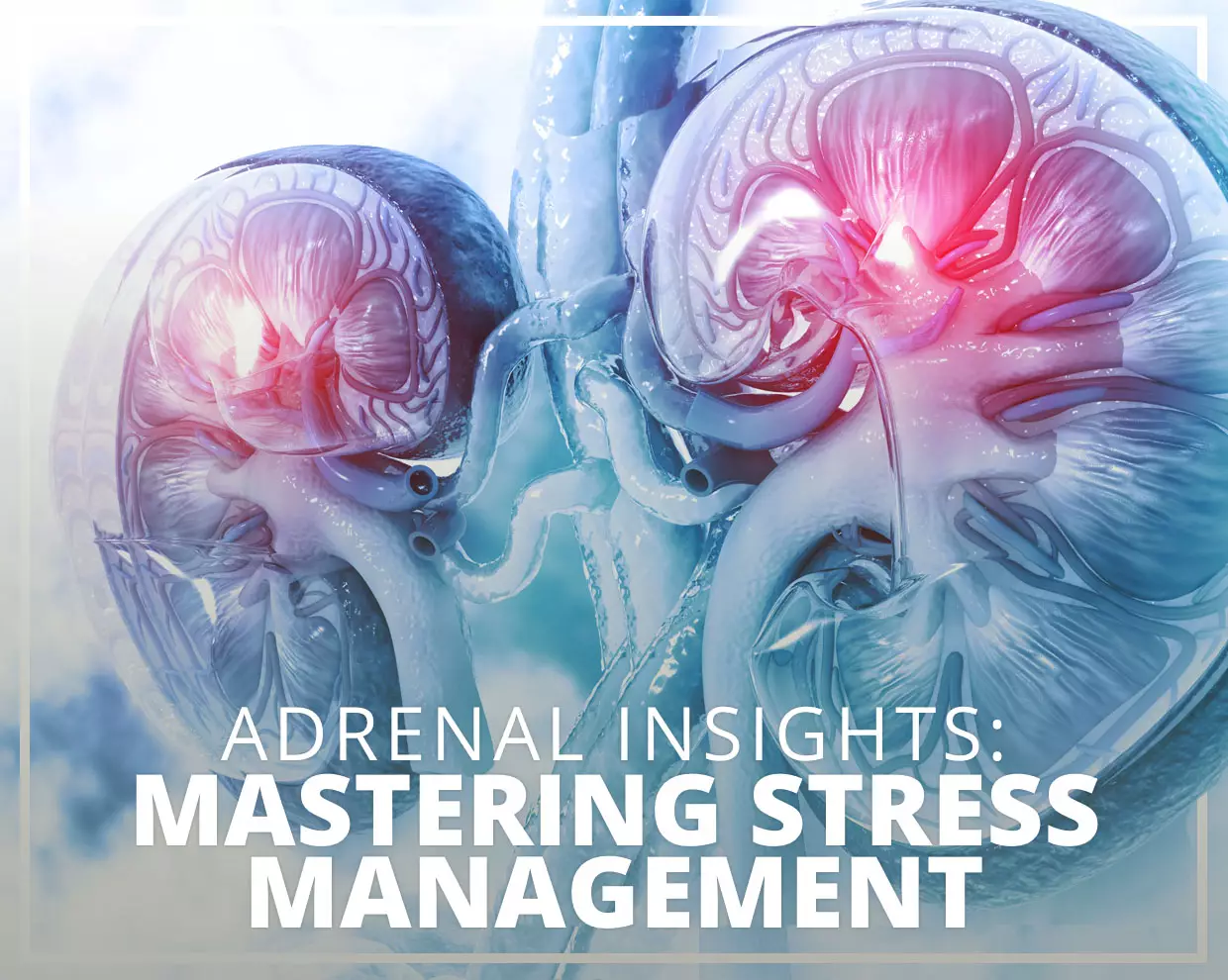In the hustle and bustle of our 21st-century lives, stress has become an all-too-common part of our everyday experience. The World Health Organization (WHO) reports that global stress levels have steadily increased over the past decade, with a significant spike in 2023. [1] This escalating trend not only impacts our mental well-being but also significantly affects our physical health, particularly the health of our adrenal glands.
Understanding the Stress-Adrenal Connection
Our adrenal glands, small but powerful organs situated above our kidneys, play an integral role in our body's response to stress. These glands produce vital hormones, including cortisol, commonly known as the 'stress hormone'. [2] In response to stressful situations, our adrenal glands work overtime to maintain the body's equilibrium. However, prolonged or chronic stress can overwhelm these glands, leading to a condition known as adrenal fatigue or dysfunction, characterised by symptoms such as prolonged fatigue, difficulty in recovering from exercise, [3] low mood, and cravings for salty foods. [4]
According to this data, adrenal fatigue was not recognised as an official diagnosis until 2023, given the nuanced complexity of the symptoms and the broad range of potential causes such as prolonged stress, inadequate sleep, poor diet, and chronic illnesses. [5]
Effects of Chronic Stress on Adrenal Health
Chronic stress affects adrenal health by leading to overproduction of cortisol. [6] This overproduction can trigger an imbalance in other hormones, which may result in a host of health issues, such as sleep disturbances, fatigue, mood swings, weight gain, and lowered immunity.
The WHO data shows a surge in such cases globally, affirming the increased need for effective stress management and adrenal health strategies. There is a growing understanding of the critical connection between stress management and adrenal health, which is pivotal in maintaining overall well-being. To combat this, there are now numerous tools available to help manage stress and support adrenal health.
Managing Stress in 2023: Tools & Techniques
As stress levels continue to rise, so does the necessity for effective stress management techniques. Here are some strategies that have shown promise in 2023:
1. Mindfulness Practices: Mindfulness practices, such as meditation and yoga, have been increasingly utilised as stress-relief techniques. Recent research suggests that these practices can effectively reduce cortisol levels, thus promoting adrenal health. [7]
2. Balanced Nutrition: A balanced diet is vital for maintaining adrenal health. Nutrients, especially B-vitamins, vitamin C, and magnesium, are crucial for adrenal function. [8]
3. Regular Exercise: Regular physical activity can aid in stress management by boosting mood-enhancing hormones, like endorphins. However, it's important to find a balance, as excessive exercise can also contribute to adrenal fatigue. Gentle, regular exercises such as walking, yoga, and swimming are advisable.
4. Adequate Rest and Sleep: Proper rest is vital for adrenal health. It's essential to establish regular sleep patterns and create a conducive environment for relaxation and recovery. The blue light blocking glasses available at Functional Self can help regulate your sleep cycle and improve sleep quality.
5. Professional Help: For individuals experiencing chronic stress or symptoms of adrenal fatigue, professional help may be necessary. Cognitive Behavioural Therapy (CBT) and other therapeutic modalities have proven effective in managing stress and promoting overall well-being. [9] CBT is a type of therapy that changes thought patterns to manage problems and improve emotional regulation.
In 2023, the world is waking up to the critical connection between stress management and adrenal health. Managing stress is no longer just about emotional wellbeing but plays a vital role in maintaining physical health, particularly the health of our adrenal glands. By practising mindfulness, eating a balanced diet, engaging in regular physical activity, ensuring adequate rest, and seeking professional help when necessary, we can support our adrenal health and manage stress effectively.
Discover a wealth of resources for a healthier, more balanced life on our Functional Self Blog, where you'll find articles on everything from the latest health trends to practical tips for maintaining optimal wellness.
References
[1] Stress
[2] Physiology, cortisol
[3] Physical activity and environmental influences on adrenal fatigue of Saudi adults: biochemical analysis and questionnaire survey
[4] Salt craving: The psychobiology of pathogenic sodium intake
[5] Adrenal fatigue does not exist: a systematic review
[6] Chronic stress, cortisol dysfunction, and pain: a psychoneuroendocrine rationale for stress management in pain rehabilitation
[7] Cortisol and antidepressant effects of yoga
[8] The effects of multivitamin supplementation on diurnal cortisol secretion and perceived stress
[9] The efficacy of cognitive behavioral therapy: a review of meta-analyses

 UK Store
UK Store  NZ Store
NZ Store AU Store
AU Store EU Store
EU Store





















